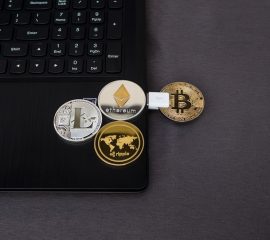
10 Things to Look Out For When Securing a Mobile Loan
Banking applications are another great way to save one’s time and resources to go to the bank for everyday purposes. Through this software, one can quickly check their account status and do many other essential tasks such as money transfer, the payment of bills, etc. Another important use is to request a loan, which can be termed as a mobile loan.
With the arrival of these applications, many processes like loans have now been moved to facilitate people. They are an easy way for many people to request an urgent sum without going to the bank every day. Services like these are also reaching developing countries like Nigeria with the advent of MPESA Fuliza loans.
While these can be quick to access, there can be some things to look out for during this process. The threats of a digital asset are as advanced as the technology itself. Every day, there is a new threat emerging which causes a significant loss for people. While requesting a mobile bank loan, one should look out for these things:
1. Malware
One of the biggest and most common threats of digital technology is malware. Through redirecting links in a browser, malware can enter your phone and cause a lot of damage to your personal and financial life.
It can easily trace your keyboard strokes to figure out your login credentials. With this information, any hacker can do unimaginable things. So make sure your browser does not have any peculiar sites open.
2. Third Party Applications
Another primary reason why people’s private information gets leaked is because of third party applications. Through the simplest tricks of manipulation, they can convince a simple man to download their software, which, in turn, works as the hacker’s way of getting personal information.
One problem with such applications is that they can also steal social information such as photos and videos. They can also gain access to banking processes by communicating within the phone with or without the user’s authorization. So to ensure the safety of your account, keep checking your phone for suspicious software.
3. Phishing
Phishing is the most obvious way of scamming people. It is currently one of the most common and successful ways hackers acquire people’s bank account information. That’s why official banking sites remind people to stay clear of phishing sites. The way these hackers approach a target is very cunning. They’ll interact with them via email or a call and pretend to be officials from their bank. So keep an eye out for all sorts of baits to keep your banking data safe.
4. Authenticity of the Website
Hackers can make their way to your phone, but they can also exploit banking websites. Whatever is on the internet is a potential target for hacking. So one should know whether it is safe to make transactions or not. If you’re using a banking website on a browser, you should check the website’s link carefully. If you find “HTTPS” initially, you can carry on with your proceedings as the site is secure. But if it is “HTTP,” you need to be careful about your decisions as the website is not secure and hackers might be there.
5. Phone Security
One of the best measures of security is to start with yourself. One should keep their phones protected by necessary measures. Many hackers can directly gain access to your device if it is not password-protected. Even if your phone is lost or stolen, you won’t have to worry because the password would still be at work. So a password is always helpful in securing your identity.
6. Use your Cellular Data
Open wifi connections usually have a lot of potential hackers connected. When any device connects, they can easily hack into it because they’re on the same connection. And it’s even faster because of similar connectivity. So it’s better to spend some of your cellular data rather than risking your privacy.
7. Logging Out
It is a better measure to log out of your banking application or website after you have finished your work. Leaving your device logged in makes it a vulnerable target for a large number of threats. There have been so many theft cases, and nobody could trace the original cause of the crime because of unfiltered access with no supervision.
8. Ignore Strangers
After you’ve requested a bank loan and receive an email from an unknown person, you should never reply to their questions and report such accounts. Banking accounts usually have a “no-reply” in their email accounts, so you would know who it is from. Many scammers can try to approach you after applying for a mobile loan, so keep an eye out.
9. Saving Information Online
If you’re shopping online and have to log into your bank account on the phone, you should always close all other applications. One should also never save their credit card information on such shopping applications where scammers are looking for such opportunities. Things can worsen if a hacker gets access to your credit card information and banking details in a matter of minutes.
10. Be Vigilant
The best way to stay safe is to be cautious yourself. Nobody can guarantee your safety better than you. So it would be best if you look out for such hackers and scammers. You should also try and spread awareness among other individuals so people can be safe and happy.






